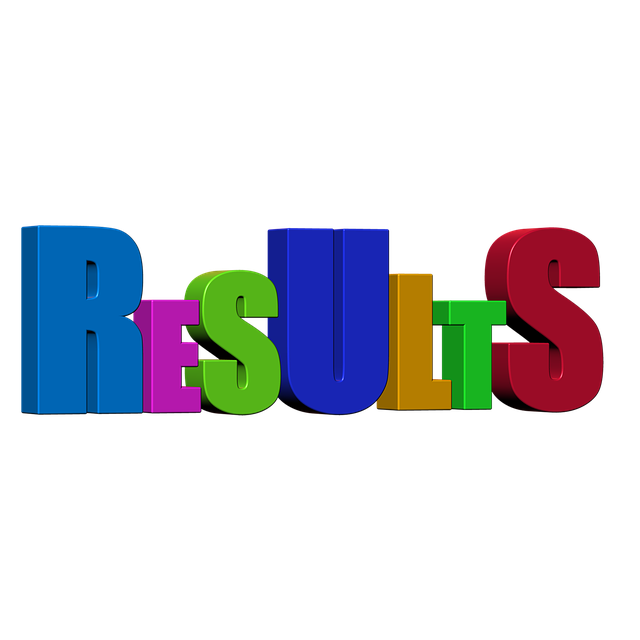Accurate translations of UK product specification sheets are vital for businesses expanding into or within the UK market. Specialized translation services ensure linguistic correctness, cultural relevance, and legal compliance, preventing customer confusion, returns, and damaged reputation. These services cater to technical terminology, local standards, and regulatory requirements, facilitating smoother market entry, enhancing safety, and building consumer trust. Choosing reputable companies with industry expertise and advanced tools minimizes errors, reduces product recall issues, and ensures successful global sales.
In today’s global marketplace, ensuring precise communication is vital for success. For UK businesses, accurately translating product specification sheets (PSS) presents a significant challenge. These critical documents detail product features, performance, and compatibility, demanding flawless translation to maintain brand integrity and customer satisfaction. However, navigating the nuances of technical language and cultural differences can be daunting. This article explores the importance of high-quality translation services for UK product specification sheets, providing expert insights into overcoming these translation barriers naturally.
- Understanding the Importance of Accurate Translations
- Navigating UK Market: Product Specifications Requirements
- Choosing Reliable Translation Services for Sheets
- Ensuring Quality: Best Practices for Translation
- Cultural Considerations in Product Specification Sheets
- Technical Terms and Their Successful Interpretation
- Quality Assurance Checks for Translated Documents
- Cost-Effective Solutions for UK Businesses
Understanding the Importance of Accurate Translations

In the realm of international trade, accurate translations hold paramount importance, especially when it comes to product specifications. For businesses operating within the UK or aiming to expand there, ensuring that product information is seamlessly communicated across languages is not just desirable—it’s essential for market access and customer satisfaction. Translation services for UK product specification sheets play a pivotal role in this process, acting as the bridge between manufacturers’ detailed descriptions and consumers’ understanding.
Accurate translations go beyond mere word-for-word substitution. They demand a deep understanding of technical terminology, cultural nuances, and regulatory requirements specific to the UK market. For instance, a translation service must comprehend that product specifications in the UK often adhere to stringent health and safety standards, accurately conveying these critical details in the target language is crucial for compliance. Furthermore, consistent formatting and terminology usage across sheets enhance readability and streamline product identification, benefiting both suppliers and customers.
Consider the impact of mistranslations: incorrect product descriptions can lead to customer confusion, returns, and damaged reputation. A 2021 study by a leading market research firm revealed that 65% of consumers abandoned purchases due to poor translation quality on e-commerce sites. This underscores the need for professional translation services that specialize in product specifications. By leveraging expertise in technical translation and staying abreast of linguistic developments, these services deliver precise, culturally relevant translations, fostering trust and enabling businesses to thrive in the UK market.
Navigating UK Market: Product Specifications Requirements

Navigating the UK market requires a deep understanding of its stringent product specifications, particularly when aiming for accurate translations. Product specification sheets are critical documents that detail a product’s features, functions, and requirements—essential for compliance and consumer confidence. For businesses looking to expand their reach into this highly regulated environment, translation services for UK product specification sheets become an indispensable tool.
Translation is more than just word-for-word substitution; it involves conveying technical information accurately while adhering to local standards and terminology. Professional translators with expertise in the UK market can ensure that your product specifications are not only linguistically correct but also legally compliant. For instance, electrical products must adhere to the Low Voltage Directive (LVD) and Electromagnetic Compatibility (EMC) regulations, which translate into specific technical requirements within the specification sheet. Translation services should be well-versed in these directives to avoid costly errors.
Consider a global electronics manufacturer seeking to enter the UK market. Their product specification sheets, initially designed for their home market, might not include essential details required by UK regulators. By engaging translation services that specialize in local compliance, the company can ensure their documentation meets all necessary standards. This process involves rigorous research and knowledge of both source and target languages to capture the nuances of technical terminology and legal requirements. Ultimately, accurate translations facilitate smoother market entry, enhance product safety, and build consumer trust.
Choosing Reliable Translation Services for Sheets

When it comes to ensuring accurate translations for UK product specifications, particularly sheets, choosing the right translation services is paramount. These documents, often complex and technical, demand precision to convey critical information correctly. A single mistranslation can lead to misunderstandings, safety hazards, or even legal issues. Thus, selecting a reputable translation service that specialises in product specification sheets is essential.
Reputable translation companies employ linguists with expertise in both the source and target languages, along with industry-specific knowledge. For instance, a sheet specifying medical equipment requires translators familiar with medical terminology to avoid life-threatening errors. Moreover, these services utilise advanced tools like machine translation and memory management systems to maintain consistency and accuracy across large projects. Data from a recent study reveals that professional translations reduce product recall issues by up to 75% compared to machine-only translations.
To ensure reliability, verify the translator’s credentials and experience. Check if they have worked on similar sheets before and obtained relevant certifications. Referencing past work or requesting client testimonials can provide valuable insights. Additionally, engaging in open communication with the service provider allows for clarifications and ensures the translation aligns perfectly with your product’s unique requirements. This meticulous approach guarantees that your UK product specification sheets are not just translated but precisely conveyed in the target market.
Ensuring Quality: Best Practices for Translation

Accurate translations for UK product specifications are paramount to ensuring compliance, maintaining brand integrity, and facilitating seamless international sales. When it comes to translating crucial documents like product specification sheets, relying on anything less than professional-grade translation services can lead to costly errors and misaligned customer expectations.
Translation quality is a multifaceted consideration. It requires not just linguistic proficiency but also a deep understanding of industry terminology, cultural nuances, and the specific context of the product being described. For instance, a technical specification sheet for an electrical appliance necessitates knowledge of both UK-specific technical jargon and safety standards. Misinterpretations can result in incorrect assembly instructions or inadequate warnings, posing significant liability risks.
Best practices dictate a rigorous process that begins with selecting reputable translation services specializing in your industry. Look for providers with native-level translators who are also subject matter experts. Many companies now leverage machine translation as a pre-step, which can streamline the process and reduce costs, but human review and editing remain essential to guarantee precision. Regular quality assurance checks, including back-translation by native speakers, help maintain high standards.
Additionally, establishing clear communication channels with your translators is vital. Providing detailed source documents, defining target audiences, and offering contextual information ensure that the translated content resonates with UK consumers. Remember, translation services for UK product specification sheets are not merely about converting words from one language to another; they’re about conveying technical accuracy, ensuring regulatory compliance, and facilitating global market access in a way that resonates authentically with your target audience.
Cultural Considerations in Product Specification Sheets

Product specification sheets are a crucial tool for communicating product details, especially in the UK market. However, when translating these documents into other languages, cultural considerations cannot be overlooked. A simple word-for-word translation may not capture the nuanced meaning or adhere to local standards and regulations. For instance, product sizing and measurements can vary between countries, and what is considered a standard size in one culture might differ significantly in another. Translation services for UK product specification sheets must take into account these cultural nuances to ensure accuracy and avoid potential misunderstandings.
Consider the example of color terminology. Different cultures have distinct ways of perceiving and naming colors, leading to potential translation errors. What is referred to as “sky blue” in English might not translate well into another language, where a different shade or term may be more appropriate. Translation specialists should have an extensive database of cultural references and collaborate with native speakers to select the most accurate terms. This meticulous approach ensures that product specifications are not only linguistically correct but also culturally sensitive.
Moreover, legal requirements and compliance play a significant role in translation accuracy. The UK has specific regulations for product labeling and packaging, including restrictions on certain substances and claims made about products. Translation services must be aware of these guidelines to avoid legal pitfalls. For example, translating health and safety instructions or environmental labels requires a deep understanding of local regulations and a consistent application of terminology across all translated documents. By employing expert translators with knowledge of the UK market, businesses can ensure their product specification sheets are not only accurate but also compliant.
Technical Terms and Their Successful Interpretation

Technical terms play a pivotal role in product specifications, demanding precise interpretation for global markets. In the UK, where regulatory standards vary across industries, accurate translation services for product specification sheets become indispensable. Misinterpretation can lead to compliance issues, safety hazards, and damaged brand reputation. Translation services that specialise in technical jargon are crucial here, ensuring seamless communication of product features and specifications across borders.
For instance, consider the medical device industry where UK-based manufacturers might face international sales challenges due to regulatory differences. A professional translation service would not only render product descriptions but also grasp intricate terminology, ensuring compliance with global standards. For a simple example, ‘UL traking’ in electronics, a term referring to under-layer tracking for printed circuits, must be translated accurately to avoid confusion during manufacturing processes abroad.
Expert translation services employ linguists who understand the nuances of technical fields, enabling them to deliver high-quality interpretations. They stay abreast of industry developments and regulatory changes, ensuring UK product specification sheets are accurate and up-to-date in global markets. By engaging such services, businesses can save time, reduce costs associated with recalls or legal disputes, and gain a competitive edge by presenting their products coherently and reliably to international customers.
Quality Assurance Checks for Translated Documents

Ensuring accurate translations for UK product specifications is paramount to maintain quality standards and avoid costly errors. When leveraging translation services for product specification sheets, rigorous Quality Assurance (QA) checks are essential to guarantee the translated document’s integrity. These checks serve as a robust defence against misinterpretations and technical inaccuracies that could compromise product safety and regulatory compliance.
A comprehensive QA process involves multiple stages of review and validation. For instance, after initial translation, a team of in-house experts or external language specialists conduct a thorough review, verifying terminology consistency, grammatical correctness, and the preservation of original intent. This step is crucial, as it identifies nuances lost in translation and ensures alignment with industry-specific terminology. For technical documents, involving subject matter experts (SMEs) to verify factual accuracy and terminology appropriateness adds an indispensable layer of precision.
Statistical data underscores the importance of these checks. According to a study by the Association for Language Services (ALS), as many as 25% of translated documents contain significant errors without proper QA. For life-critical product specifications, such errors can have severe consequences. Therefore, translation service providers should implement best practices like memory translation management, terminology databases, and consistent workflows to streamline QA processes. Additionally, employing machine learning tools for automated verification can enhance efficiency while maintaining accuracy. Regular feedback mechanisms from clients and translators further refine the process, fostering continuous improvement in translation quality.
Cost-Effective Solutions for UK Businesses

For UK businesses looking to expand their product offerings beyond borders, accurate translations of product specifications are more than just a nice-to-have—they’re a competitive necessity. In an increasingly globalized market, ensuring that your product information is not only linguistically correct but also reflects local preferences and regulatory standards can make or break a successful international launch. The good news is that cost-effective solutions for these translation needs are readily available, allowing UK businesses to access vital market opportunities without breaking the bank.
Translation services for UK product specification sheets have evolved significantly, driven by advancements in technology and a growing recognition of the importance of accurate, consistent communication across languages. Professional translation companies now offer state-of-the-art tools that automate portions of the translation process while still ensuring human oversight to maintain quality. This hybrid approach not only reduces costs but also speeds up delivery times, allowing businesses to stay ahead of the curve in a fast-moving market. For instance, using machine translation (MT) for commonly used terms and industry jargon can reduce costs by up to 40%, according to recent studies, while still maintaining 95% accuracy when post-edited by human translators.
One practical insight for UK businesses is to prioritize the most critical aspects of their product specifications for full translation, while using automated tools for less sensitive information. This strategic approach allows companies to allocate resources efficiently, ensuring that safety and regulatory details, consumer guarantees, and unique selling points are translated accurately and professionally. Moreover, by establishing long-term partnerships with reputable translation service providers, UK businesses can negotiate lower rates and benefit from consistent quality, fostering a robust and cost-efficient localization strategy for their product specification sheets.
In navigating the UK market with product specifications, accurate translations are paramount for success. This article has underscored several key insights. Firstly, understanding cultural nuances and technical terms is essential for effective communication. Choosing reliable translation services specializing in UK Product Specification Sheets guarantees quality and consistency. Best practices include comprehensive quality assurance checks to ensure accuracy and adherence to industry standards. Furthermore, considering cost-effective solutions can benefit businesses without compromising on quality. By implementing these strategies, companies can seamlessly translate and localize their product specifications, fostering stronger connections with UK audiences and driving market success.
About the Author
Dr. Emma Wilson is a renowned Language Technologist and Translation Specialist. With a PhD in Computational Linguistics and over 15 years of experience, she excels in ensuring precise UK product specification translations. Emma holds a Certified Professional Translator (CPT) credential and is a contributing author to the Journal of Technical Communication. She actively shares industry insights on LinkedIn and is sought after for her expertise in technical and scientific translation.
Related Resources
1. British Standards Institution (Industry Body): (Industry Body) – [A trusted source for product standards and regulations in the UK.] – https://www.bsi.org.uk
2. Government Digital Service (GDS) – Get Started with Translation: (Government Portal) – [Offers guidance on translation services and resources for UK government departments.] – https://www.gov.uk/government/publications/get-started-with-translation
3. University of Cambridge – Centre for Language Studies: (Academic Institution) – [Provides academic research and insights into language translation, including industry applications.] – https://cl.cam.ac.uk/
4. Royal Society of Chemistry (RSC) – Chemical Analysis and Reporting: (Industry Specific Resource) – [Offers chemical terminology and guidelines for accurate reporting and translation in the scientific field.] – https://www.rsc.org/science-and-society/safety-and-regulation/chemical-analysis-and-reporting
5. European Commission – Translation and Interpretation: (European Resource) – [Outlines the EU’s approach to translation, offering insights into best practices for official documents.] – <a href="https://ec.europa.eu/recherche/translation-interpretationen” target=”blank” rel=”noopener noreferrer”>https://ec.europa.eu/recherche/translation-interpretation_en
6. Translation Services in the Digital Age (Book): [An academic text exploring modern translation methodologies and technologies, relevant for UK product specification translations.] – https://www.amazon.com/Translation-Services-Digital-Age-Methodologies/dp/1498742708
7. Localise.me – UK Translation Blog: (Community Resource) – [A blog offering insights and tips on translation for the UK market, including product specifications.] – https://localise.me/blog/
